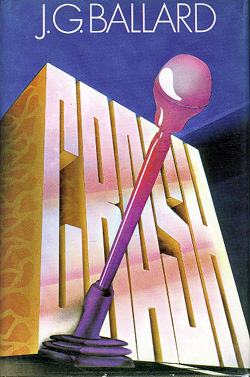This guest post was contributed by Love Reading; UK based online book suppliers established since 2005.
Some cult reads out there divide opinions and court controversy with their subject matter of feminism, sex or political bias.
Some express the sentiments and attitudes of a time so clearly that whole generations buy into them and others simply attract a huge and passionate following that cannot bear to hear a bad word said about their favorite tome.
Here are ten cult read picks, from feminism to wizardry. Like them or loathe them – just don’t criticize them to their fans or you could be in trouble.
The Female Eunuch, Germaine Greer, 1970

Written over forty years ago, this controversial book remains a talking point in the media today. Greer’s aggressive take on feminism stated that men hate women and that women have been brainwashed into hating themselves. The opinion caused a stir at launch. Her stance came under severe criticism, though it certainly provided its author with a ticket to media stardom.
No Logo, Naomi Klein, 2000

Klein’s examination of the corporations and big brands of the world sparked controversy at publication. Covering issues such as sweat shops and corporate censorship, the book takes aim at some of the world’s most popular brands, including Gap, Microsoft and Nike, examining their methods of communicating with their audience and touching on issues of globalization.
Harry Potter and the Philosopher’s Stone, JK Rowling, 1997

In this case, fans of the adventures of the young wizard in the making are more likely to burst into tears than attack you, but there is no doubt that Ms Rowling’s creations caused quite a stir and certainly have an enormous and very passionate fan base.
These books are not going to provoke much intellectual debate other than the rights and wrongs of ‘Muggle’ abuse, but there is much to be celebrated within the pages.
The Dice Man, Luke Rhinehart, 1971

This cult novel follows the life of a cynical psychiatrist who decides to live his entire life by the roll of a dice. The decisions dictated by the dice lead to dark doings and the book covers taboo subjects such as rape, murder and sexual experimentation.
At the time of publication, the novel’s subversive nature caused it to be banned in a number of countries, although this in turn merely served to increase its fan base.
The Beauty Myth, Naomi Wolf, 1991

In contrast to The Female Eunuch, The Beauty Myth expressed a more glamorous approach to feminism. Ms Wolf declared that pressure to be thin de-feminizes women, which is why the author encourages women to love their curves rather than conform to standards set upon them.
Her book highlighted the pressure that magazines put upon women in expressing ‘ideal women’ standards that modern women still measure themselves against despite making greater achievements and taking greater prominence in society. The publication is said to be one of the great feminist books of all times.
Trainspotting, Irving Welsh, 1993

Painting a rather bleak view of disaffected youth in the 1980s, Trainspotting was the first novel from Scottish writer Welsh. It is actually a collection of short stories, each with similar undertones.
The novel quickly gained a cult following, which was only boosted by its translation to the big screen in 1999 a film that was directed by Danny Boyle. The sequel, Porno and more recently, Skagboys, a prequel of sorts, are less well known.
American Psycho, Brett Easton-Ellis, 1991

This book offers a dark take on Manhattan’s corporate playboys in the late eighties and early nineties. The story reveals the frighteningly gory and murderous activities of the sexually depraved Patrick Bateman, who to the outside world appears to be completely normal.
The book attracted a massive cult following, although some countries found the extreme violence within too controversial for mainstream reading and insisted that it be sold wrapped in cellophane.
The Catcher in the Rye, J. D. Salinger, 1951

This novel has been quoted as one of the 100 best novels of the 20th Century and, although intended for adults, it was subsequently adopted by youths as a cult read largely due to its content of teenage angst and rebellion.
Controversially for the time of publication, the book is heaving with swearing and sexual references, offering an uncensored view of misspent youth of the fifties.
Crash, J. G. Ballard, 1973

For those who are familiar with Ballard’s semi-autobiographical work, Empire of the Sun, Crash may come as somewhat of a shocker. While Empire of the Sun reflects on a childhood spent in a war-torn world and prison camp, it is the story of a child nonetheless sex and swearing are nowhere to be seen.
Crash, however, reveals the story of a group of sexual fetishists who get their turn-ons from participating in brutal car crashes. Its subject matter caused huge controversy and much criticism, but that didn’t stop it being turned into a film in 1996.
Featured images:
 License: Creative Commons image source
License: Creative Commons image source License: Creative Commons image source
License: Creative Commons image source License: Creative Commons image source
License: Creative Commons image source License: Creative Commons image source
License: Creative Commons image source License: Creative Commons image source
License: Creative Commons image source License: Creative Commons image source
License: Creative Commons image source License: Creative Commons image source
License: Creative Commons image source License: Creative Commons image source
License: Creative Commons image source License: Creative Commons image source
License: Creative Commons image source